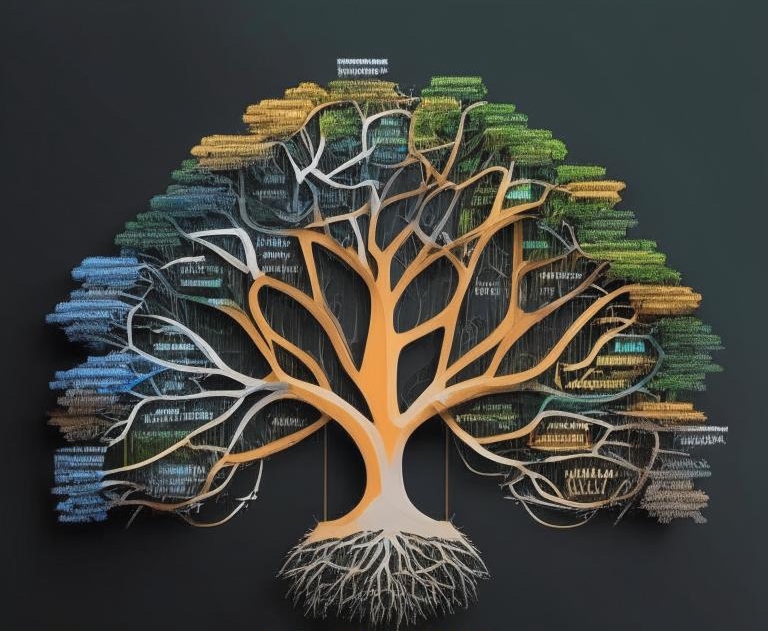The Choice of Theory
by Oleg Sovetnik
Choosing a Foundational Theory in Sociological Research for Applied Conceptualization
The choice of a foundational theory in sociological research is a critical step that defines the analytical framework and the direction of the study. Theory helps structure data and its interpretation, serving as the basis for further conceptualization. In this article, we will examine how theory becomes the foundation for applied conceptualization, allowing the researcher to transform real-world objects into subjects of analysis.
The Role of a Foundational Theory in Sociology
A foundational theory is the bedrock that helps researchers organize social phenomena and identify patterns. Sociology offers many theoretical approaches, such as the theory of social action, frame theory, and the theory of facts. Each provides a unique perspective for analyzing social reality, emphasizing different aspects of behavior, interaction, and social structure.
For example, the theory of social action focuses on individuals’ intentions and motives that influence their behavior. Frame theory centers on how people structure their perception of reality through cognitive schemas and social constructs. The theory of facts emphasizes how social facts and objective structures of society affect individuals and social groups.
The Connection Between Theory and Subject Area
The choice of a foundational theory determines which aspects of social reality will be highlighted for study and which will be left out. Theory serves as the basis for conceptualizing the object, transforming it into a subject of research. This process is akin to creating a conceptual framework through which the researcher perceives and understands the object.
If the research object is individual behavior within an organization, the theory of social action will view their actions through the lens of motives and goals. Frame theory, in contrast, would focus on how individuals structure their actions based on contextual interpretations and social expectations, while the theory of facts would emphasize how external social conditions, such as norms and rules, shape behavior.
Theory as a Filter for Reality
Theory acts as a filter through which the researcher interprets objects. It allows for the highlighting of specific aspects of social reality, making them visible for research, while ignoring others. In this process, theory functions as a sort of “lens” through which the researcher perceives the world. This is closely related to the concept of “Umwelt,” describing the subjective perception of reality: the theoretical framework structures cognition in such a way that objects are transformed into understandable and researchable subjects.
The Strategic Choice of Theory
The process of choosing a foundational theory requires a strategic approach and consideration of several factors:
-
Research Goals: If the goal is to study human behavior motives, the theory of social action is the best fit. If the focus is on how people structure and interpret social situations, frame theory should be considered. For analyzing the influence of social structures on individuals, the theory of facts might be applied.
-
Type of Data: Different theories are better suited to different types of data. Quantitative data may be better interpreted through structure-oriented theories, such as the theory of facts, whereas qualitative data related to perception and interpretation lend themselves more readily to social action or frame theories.
-
Epistemological Position: The choice of theory also depends on the researcher’s philosophical stance on knowledge. The positivist theory of facts is oriented toward objective societal structures, while constructivist approaches like frame theory emphasize the importance of subjective perception and interpretation.
Theory as a Foundation for Conceptualization and Operationalization
The foundational theory serves as the basis for conceptualizing the object and turning it into a subject. This involves creating a system of concepts that will help the researcher empirically investigate the object. After choosing the theoretical framework, the researcher defines how key concepts will be used in the study and how they will be measured (operationalization).
For example, if the researcher chooses the theory of social action, concepts such as “intention” and “goal” become crucial categories for analyzing individual behavior. These concepts must be translated into measurable indicators, such as surveys or interviews, which can reveal the motives behind actions. In the case of frame theory, the researcher will look for ways participants in interactions structure their perceptions and interpretations of social situations.
Example of Applied Conceptualization
Let’s consider a study aimed at analyzing interactions in online communities. If frame theory is chosen, the researcher will focus on how community participants interpret and structure their interactions based on frames such as respectful communication or the division between “insiders” and “outsiders.” These frames become the subject of the study, while the theory itself is the tool for understanding how these cognitive schemas influence interaction.
If the theory of social action is applied, attention would shift to the motives and goals of participants: what goals they pursue by participating in the community and how their actions align with these goals. If the theory of facts is selected, the study would concentrate on how social and institutional structures (e.g., platform rules) influence participants’ behavior and interactions.
The choice of a foundational theory is a strategically important step in sociological research that shapes the entire research process. Theory provides the framework through which the researcher “sees” the object and turns it into a subject of analysis. This choice takes into account the goals of the study, the nature of the data, and the researcher’s philosophical assumptions. A well-chosen theory helps create a systematic conceptualization and effectively operationalize key concepts for empirical analysis.
sociology theory research
